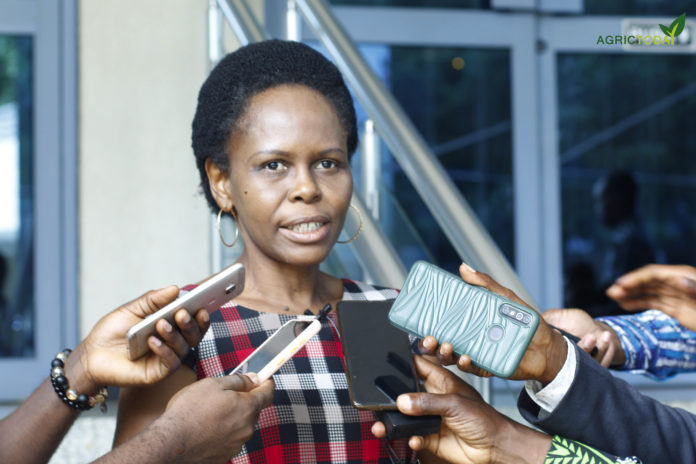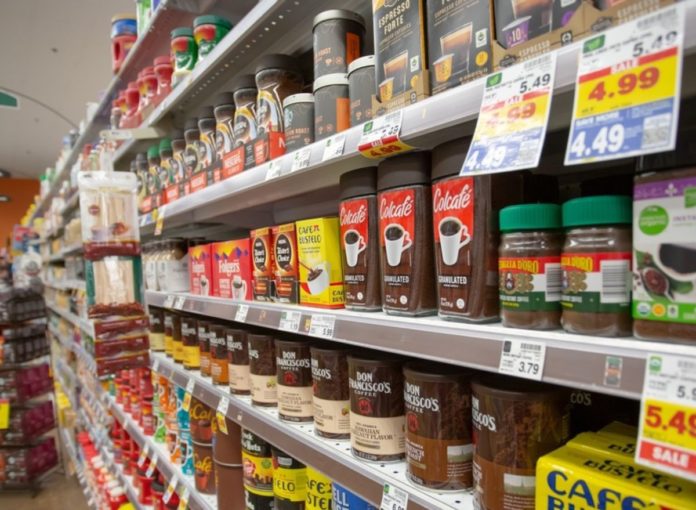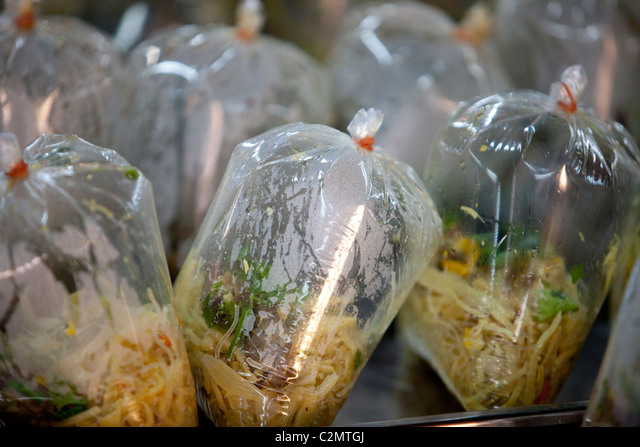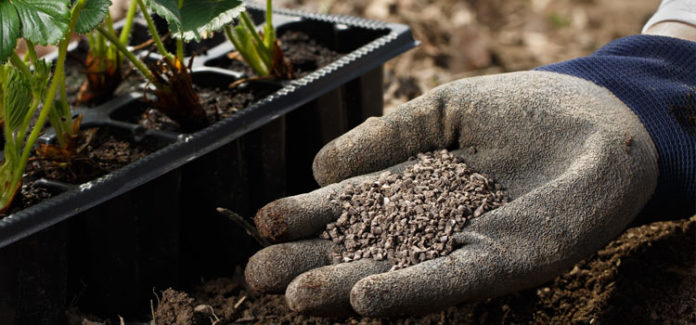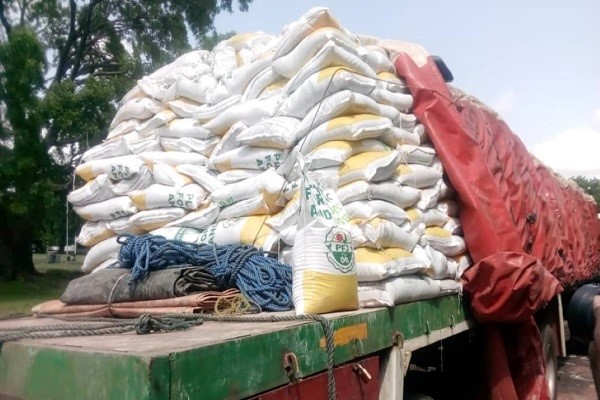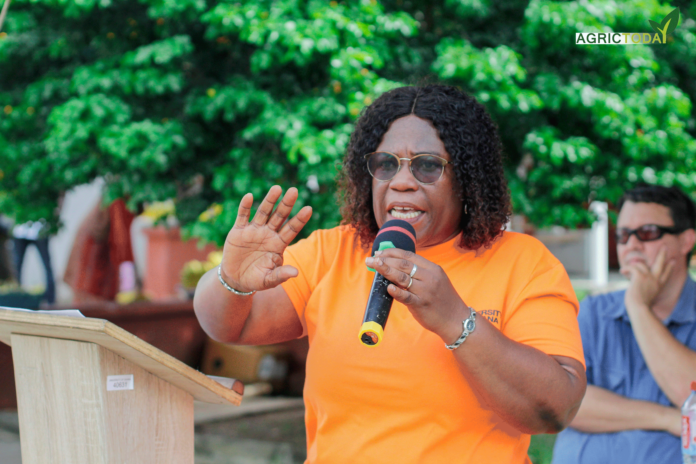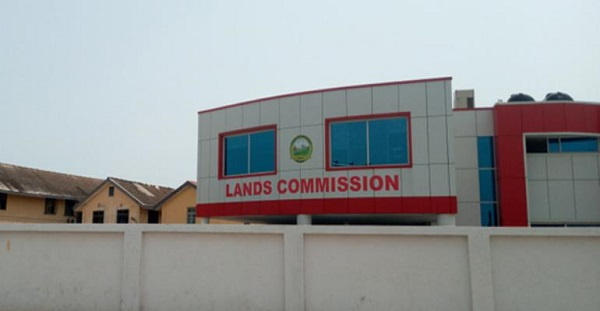Seed is the heart of the agriculture sector, for fertilizer to really function and appreciate its usefulness there should be quality seed. Without quality seeds, nothing can work on the soil.
LIFESTYLE: Do you know what you’re really drinking? 8 Coffee brands that use the lowest quality ingredients.
Some people see coffee as an absolute necessity, a liquid that must be consumed within minutes of waking up. Others see it as a treat to be enjoyed at leisure, whether over a weekend paper at home or with a coffee shop scone or croissant and a side of good conversation.
So too do coffee producers fall into different categories. You have those brands that truly care about the quality of their product—that are careful about the sourcing of the beans, keep tight control over roasts and grinding, and do everything they can to ensure that the coffee is in a consumer’s cup is great stuff. Then you have the coffee brands that see their product merely as a commodity and do everything they can to cut costs.
The unfortunate thing is that sometimes you’ll find brands that operate like the latter acting like the former. Spot any like that on our rundown here? Here are the familiar coffee brands that use the lowest quality ingredients. Plus, don’t miss it.
Yuban

For years, Yuban was considered a brand that made good coffee for a great price. It was almost exotic, even, proudly made with 100% Colombian coffee beans. Then, recently, the recipe changed, according to Coffee Detective. And not for the better. Yuban is no longer 100% Colombian—and based on consumer response, it’s no longer good. In some of its advertising online, the company tries to hedge its way around this change, saying: “Made with Robusta and Arabica beans from Latin America and other tropical regions.” This actually means: “We sourced the cheapest beans we could get from wherever we could find them.”
Green Mountain Coffee

Once hailed as one of America’s best independent coffee companies, Vermont’s Green Mountain Coffee went the way of many brands: it went full-on corporate. According to CNN, by the late years of the 20th century, the brand had grown so big it bought up Keurig, the name with which Green Mountain Coffee pods are now synonymous in the minds of many, only to be bought out by private equity juggernaut JAB Holding in late 2015. Today, with a focus on costs instead of coffee, those little Green Mountain Coffee pods often contain inferior blends of coffee, according to Serious Eats.
Maxwell House
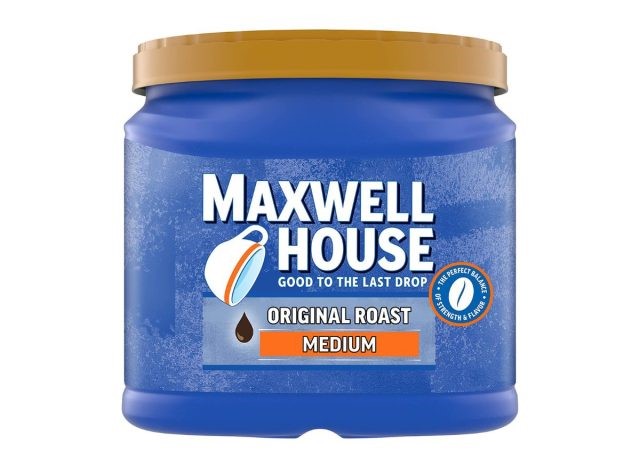
Maxwell House is a storied American brand that has been in the kitchen of many a family for many a generation. But that’s a testament to customer inertia, not product quality. Made with a blend of Arabica and cheaper, bitterer Robusta beans, according to The Old Coffee Pot, Maxwell House’s “Original Roast” coffee is cheap stuff, plain and simple. And in other cheap news, Kraft Heinz, the brand’s parent company, lost a suit last year that claimed they overstated how many cups of coffee a can of the stuff would brew, according to Bloomberg Law.
Nescafé
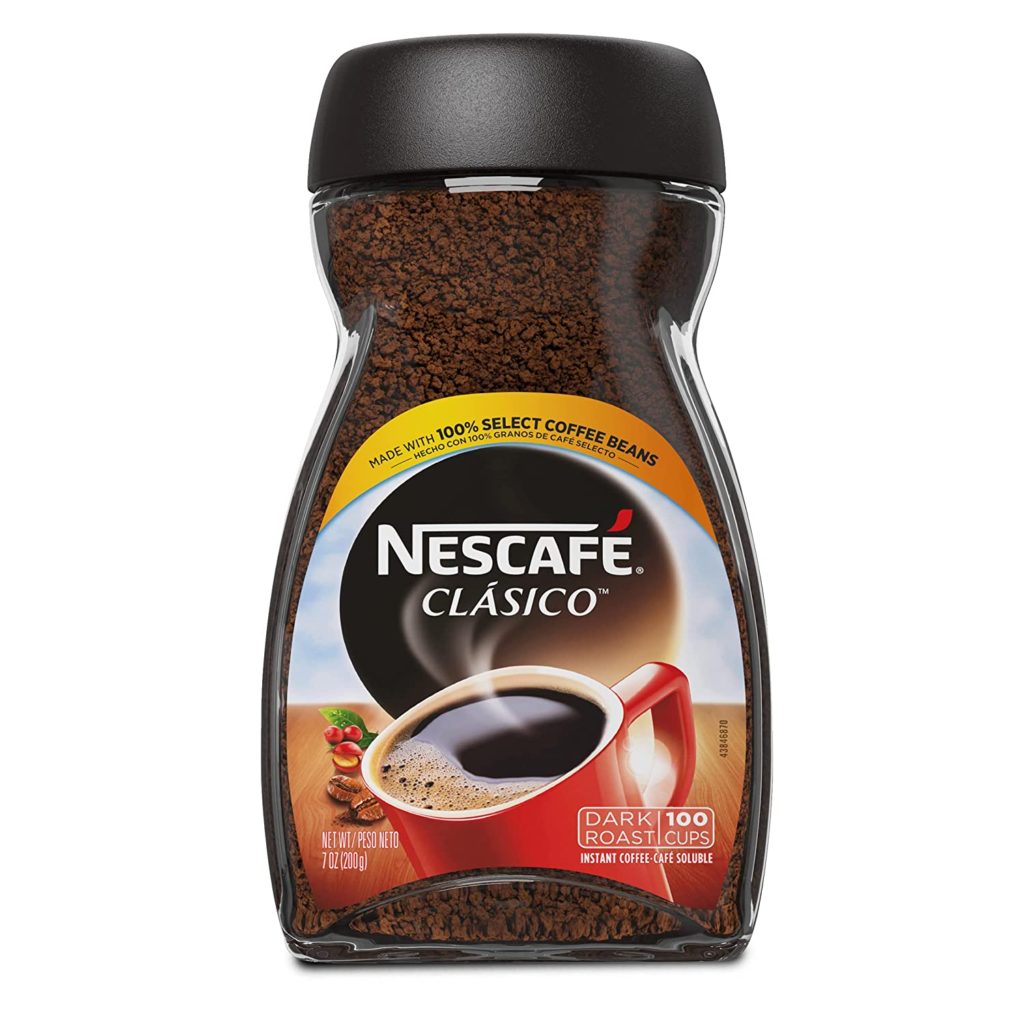
Not much of a surprise that a cheap instant coffee brand uses cheap ingredients, really. Nescafé coffee was never very good but got an ingredient change about five years back that made things even worse, according to Manchester Evening News. Customers compare the flavor of the new recipe to dishwater and called it “vile” and “awful.”
Folgers
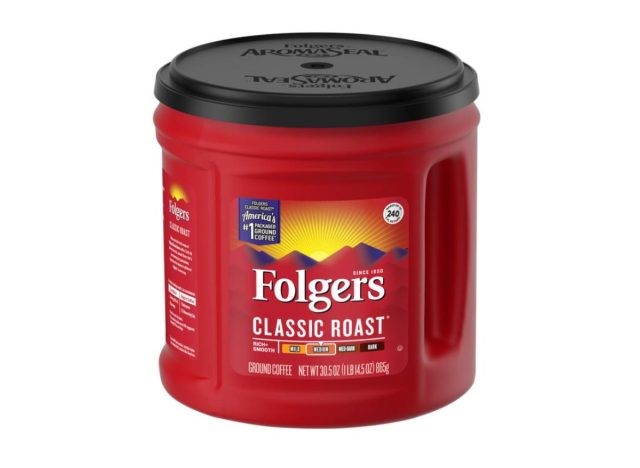
Brewed with care, Folgers can make a decent cup of coffee. Not great, but decent. But that’s not because of any premium level of ingredients. Their Classic Roast blends Robusta and Arabica beans claimed to be “mountain grown” which implies higher altitude but does not actually ensure it, according to Leaf. Coffee grown at higher altitude tends to be more complex and tasty, but it’s harder and more expensive to grow—remember that mountains start at low altitude, so something can be “mountain grown” while in fact having grown quite near sea level.
Dunkin’ at Home K-Cups

Dunkin’, formerly known as Dunkin’ Donuts, of course, actually has some pretty good coffee, especially for the price. And especially when accompanied by a donut. Now Dunkin’ at Home K-Cups, the quick-brew single cups you can make in a Keurig machine, on the other hand? That’s cheap Joe best skipped. What’s the disconnect? A complete one: Dunkin’ at Home is made under license by The J.M Smucker Company; it’s literally a different coffee.
McCafé at Home
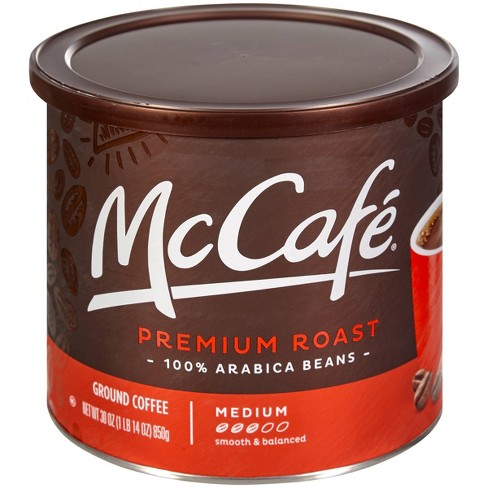
Like Dunkin’, McDonald’s has surprisingly decent (though often dangerously hot) coffee in its stores and yet offers very low-quality coffee when you buy the stuff to brew it at home. According to Mashed, the McCafé coffee you can buy at stores tastes burnt and bitter even when brewed properly.
Seattle’s Best
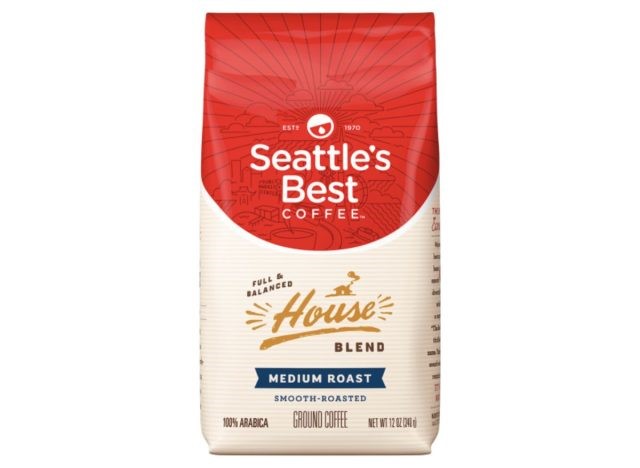
Though they take pains not to share this fact, Seattle’s Best coffee brand is owned by Starbucks, and it has been since 2003, via Business Insider. But rather than being primarily a brand with its own retail locations, it’s a cheaper coffee pushed out at places like gas stations and fast-food chains that don’t have their own proprietary coffees.
Plastics not designed to hold hot foods, stop the practice – FDA cautions.
The Director of Industrial Support at the Food and Drugs Authority, Ebenezer Kofi Essel, has warned the general public against consuming hot meals from plastic rubbers.
He pointed out that the practice may pose a health risk to all engaged in it and should not be encouraged.
Citing the example of ‘Koko’ (porridge) in plastics, he urged Ghanaians to seek alternative wares such as cups or calabash among others to carry their foods since plastics are not designed for that purpose
He explained that heat from some foods can cause harmful chemicals in the plastic rubbers to be ingested while eating from them.
“Plastics are not designed for Koko. What prevents me from taking a cup or any ware that can hold the Koko. Those plastics were not designed for hot foods and so once you put it in there if there is going to be any leaching then you are going to suffer the consequences”, Mr. Essel said on Angel FM’s Anopa Bofo Morning Show.
He was responding to a question about concerns from some consumers over the continued use of harmful, non-biodegradable plastic items to serve or pack hot food and beverage (F&B) items
He however added that “I have not sited any work in Ghana or anywhere that has shown that if I put Koko in plastic this will happen to me. But what I can say is that so long as that material is not designed for Koko if there is any risk you would be exposed to that risk so don’t do it. I will be comfortable with you telling me that it was not designed for it.”
Contrary to the perception that food packaged in polystyrene, popularly called ‘take away’, Mr. Kofi Essel said that the temperature of the food is not high enough to cause the leaching of chemicals into the food.
“Leaching would take place under over hundreds of degrees Celsius. But the dangerous practices that we see is keeping such foods in microwaves [with the take away]”
Touching on the relevance of “World Safety Day”, he advocated that Ghanaians pay attention to eating safe foods, and be mindful of where they eat from.
He defined ‘safe food’ as food that contains all the essential nutrients and is devoid of microbes or disease-causing organisms.
The state and nature of the food should also be good such that its smell and look should not offend your senses but rather, appeal to you, he suggested.
High intake of sugary drinks by children ‘worrying’ – FDA.
The Food and Drugs Authority (FDA) says it is concerned about the high intake of sweetened-carbonated drinks by the public, especially children.
Support the utilization of the organic fertilizer guidelines to improve the agriculture sector – AGRA urges stakeholders.
Currently, the country is faced with price hikes of chemical fertilizer leading to a high cost of production oscillating farmers from production. To combat the challenge, reduce the harmful effect associated with chemical fertilizer usage, and ensure the production of quality products by the farmers, the best option is to patronize organic fertilizers.
Fertiliser sales hit the lowest patronage as prices shoot up.
Fertiliser patronage for this year’s planting season is hitting a snag – an all-time low – as farmers are currently having difficulties procuring the commodity for crop production due to the price hikes.
YAF calls stakeholders to exhibit at the Youth in Agribusiness Festival.
The John A. Kufour Foundation (JAKF) launched the maiden edition of the Youth in Agribusiness festival to establish the Youth in Agribusiness Information hub in Ghana.
Be innovative, and creative to achieve higher production – Prof. Irene urged smallholder farmers.
Smallholder farmers constitute the largest workforce in the agriculture sector in Africa. In Ghana, the agriculture sector is overwhelmingly dominated by smallholders producing almost all the food crops being maize, cassava, rice, and cash crop like cocoa.
Land Commission takes over Nungua Farms from the Ministry of Food and Agriculture.
A letter was issued by the AG. Executive Secretary, James E.K. Dadson of the Land Commission has indicated that the Nungua Farmland which is the hub for research of the Animal Science Directorate of the Ministry of Food and Agriculture has been taken for redevelopment.
LIFESTYLE: Coffee drinkers may be at a lower risk of early death.
Even people who take sugar seem at lower risk, say experts, but results may be due to coffee drinkers being more affluent
People who drink coffee – whether with or without sugar – appear to have a lower risk of early death, although experts caution the finding may not be down to the brew itself.
About 98m cups of coffee are drunk every day in the UK, according to the British Coffee Association, with the National Coffee Association revealing that in the US the figure is about 517m cups.
Previous studies have suggested the beverage may be beneficial to health, with coffee drinking associated with a lower risk of conditions ranging from chronic liver disease to certain cancers and even dementia.
Now researchers in China have found people who consumed a moderate amount of coffee every day, whether sweetened with sugar or not, had a lower risk of death over a seven-year period than those who did not.
Similar results were found for instant, ground, and decaffeinated coffee.
The study, published in the Annals of Internal Medicine, is based on data from more than 171,000 participants of the UK BioBank – which has collected genetic, lifestyle, and health information from more than 500,000 people since it began in 2006, including details of participants’ coffee-drinking habits.
The team used data from death certificates to track the participants for a median period of seven years from 2009, during which 3,177 people died.
After taking into account factors including age, sex, ethnicity, educational level, smoking status, amount of physical activity, body mass index, and diet, the team found that, compared with those who did not drink the brew, people who consumed unsweetened coffee had the lowest risk of death.
The greatest reduction, a 29% lower risk of death, was seen for those drinking between 2.5 and 4.5 cups a day.
Reductions in the risk of death were also seen for coffee sweetened with sugar, at least for those drinking between 1.5 and 3.5 cups a day. The trend was less clear for people who used artificial sweeteners.
However, the study questioned participants about coffee drinking and other habits only once and relied on self-reporting. Most of those who used sugar added only a spoonful to their drink – meaning it is unclear if the results would hold for speciality coffees with a high sugar content.
Naveed Sattar, a professor of metabolic medicine at the University of Glasgow who was not involved in the work, cautioned that the findings – while intriguing – were not clear-cut.
“The observational nature of this new study means these conclusions are far from definitive,” he said.
“This is because coffee drinkers are in general more affluent and have healthier lives than non-drinkers and I remain unconvinced whether these factors can be overcome in observational studies.” Prof Sattar added that genetic evidence did not link coffee to any important health benefits.
“I would suggest people stick to coffee or tea, preferably without sugar, which most people can adapt to, and try to do all the other things we know keep you healthy – move more, eat and sleep better.”
In an accompanying editorial, Dr Christina Wee, deputy editor of the journal, agreed the findings were not conclusive. But, she added, it did appear that drinking coffee, whether unsweetened or with a modest amount of sugar, was probably not harmful to most people.
“So drink up – but it would be prudent to avoid too many caramel macchiatos while more evidence brews,” she wrote.
we have a small favour to ask. Tens of millions have placed their trust in the Guardian’s fearless journalism since we started publishing 200 years ago, turning to us in moments of crisis, uncertainty, solidarity, and hope. More than 1.5 million supporters, from 180 countries, now power us financially – keeping us open to all, and fiercely independent.
Unlike many others, the Guardian has no shareholders and no billionaire owner. Just the determination and passion to deliver high-impact global reporting, always free from commercial or political influence. Reporting like this is vital for democracy, and fairness, and to demand better from the powerful.
And we provide all this for free, for everyone to read. We do this because we believe in information equality. Greater numbers of people can keep track of the global events shaping our world, understand their impact on people and communities, and become inspired to take meaningful action. Millions can benefit from open access to quality, truthful news, regardless of their ability to pay for it.
If there were ever a time to join us, it is now. Every contribution, however big or small, powers our journalism and sustains our future.

